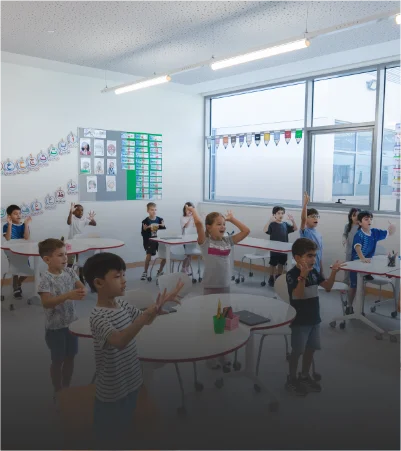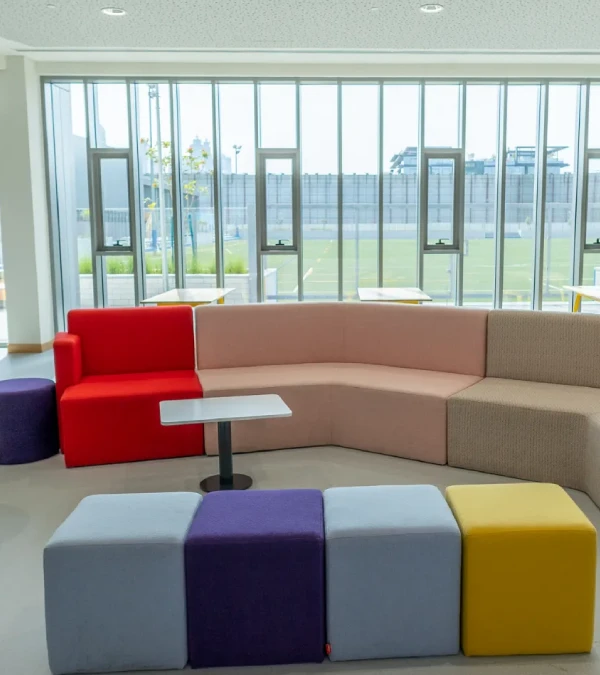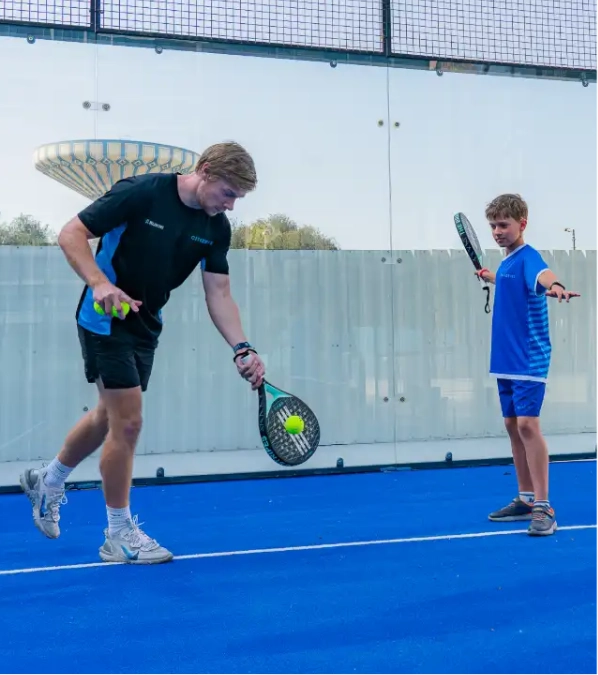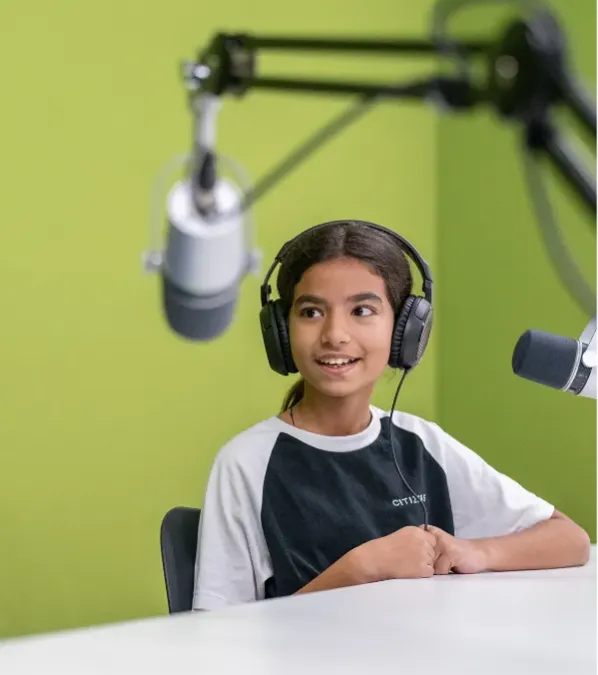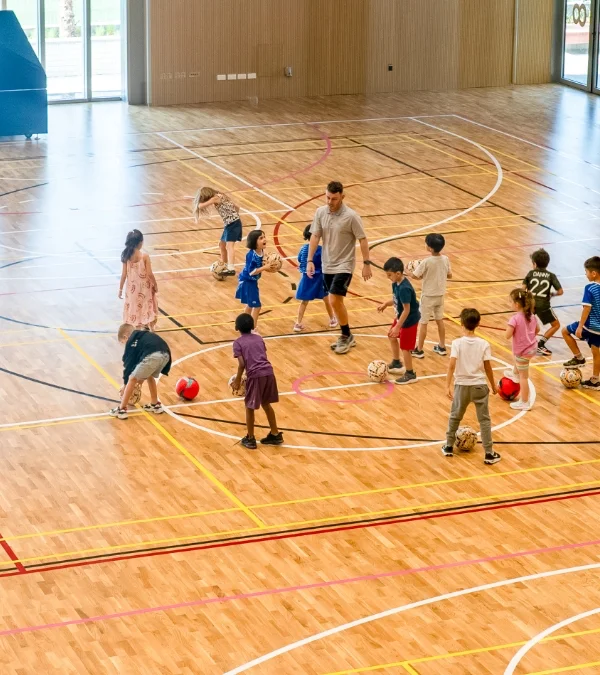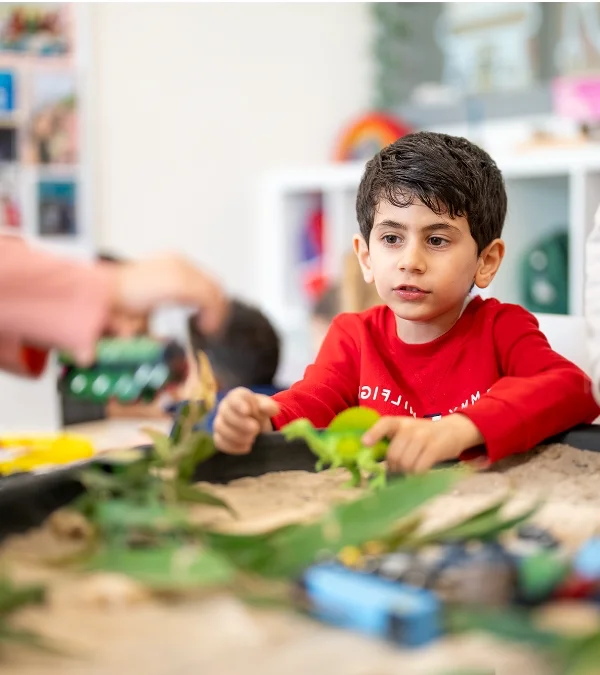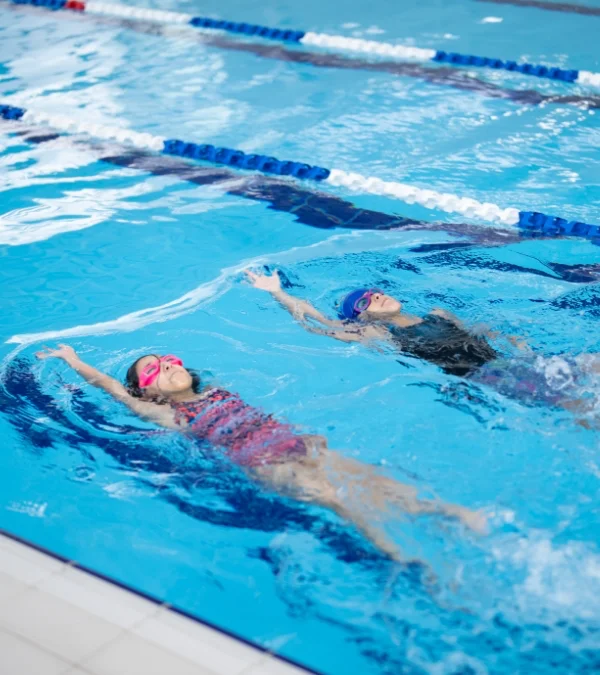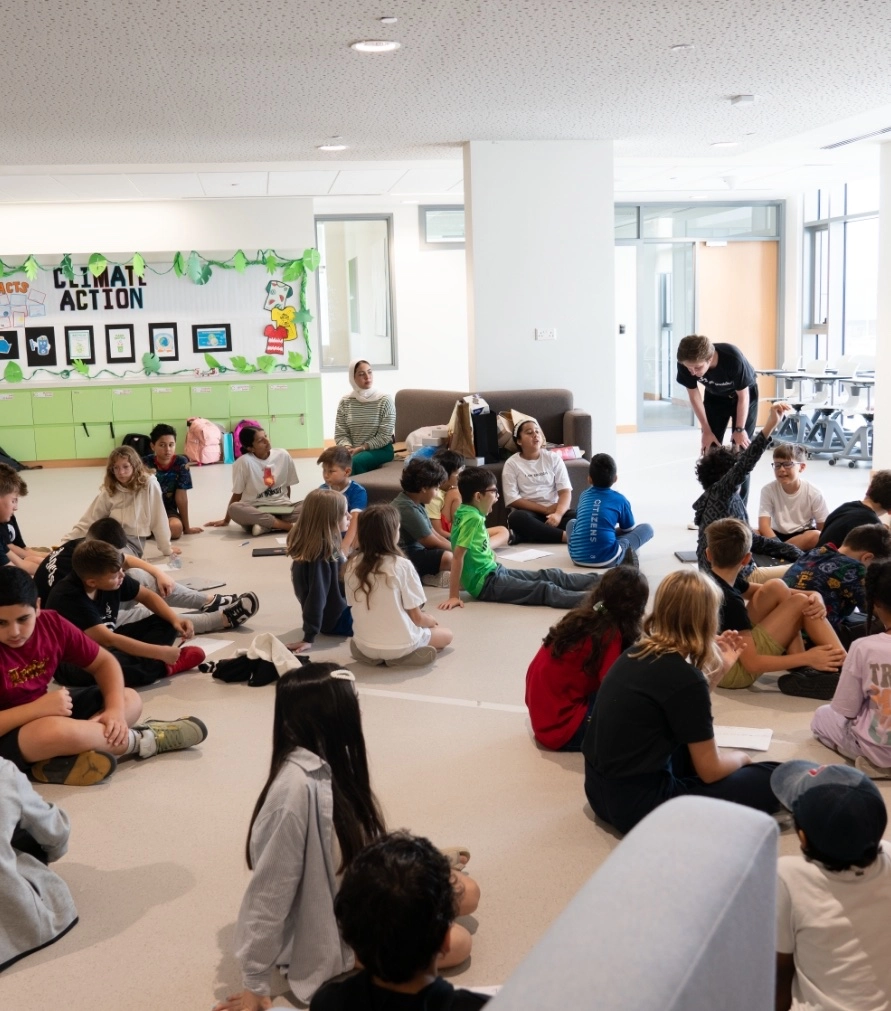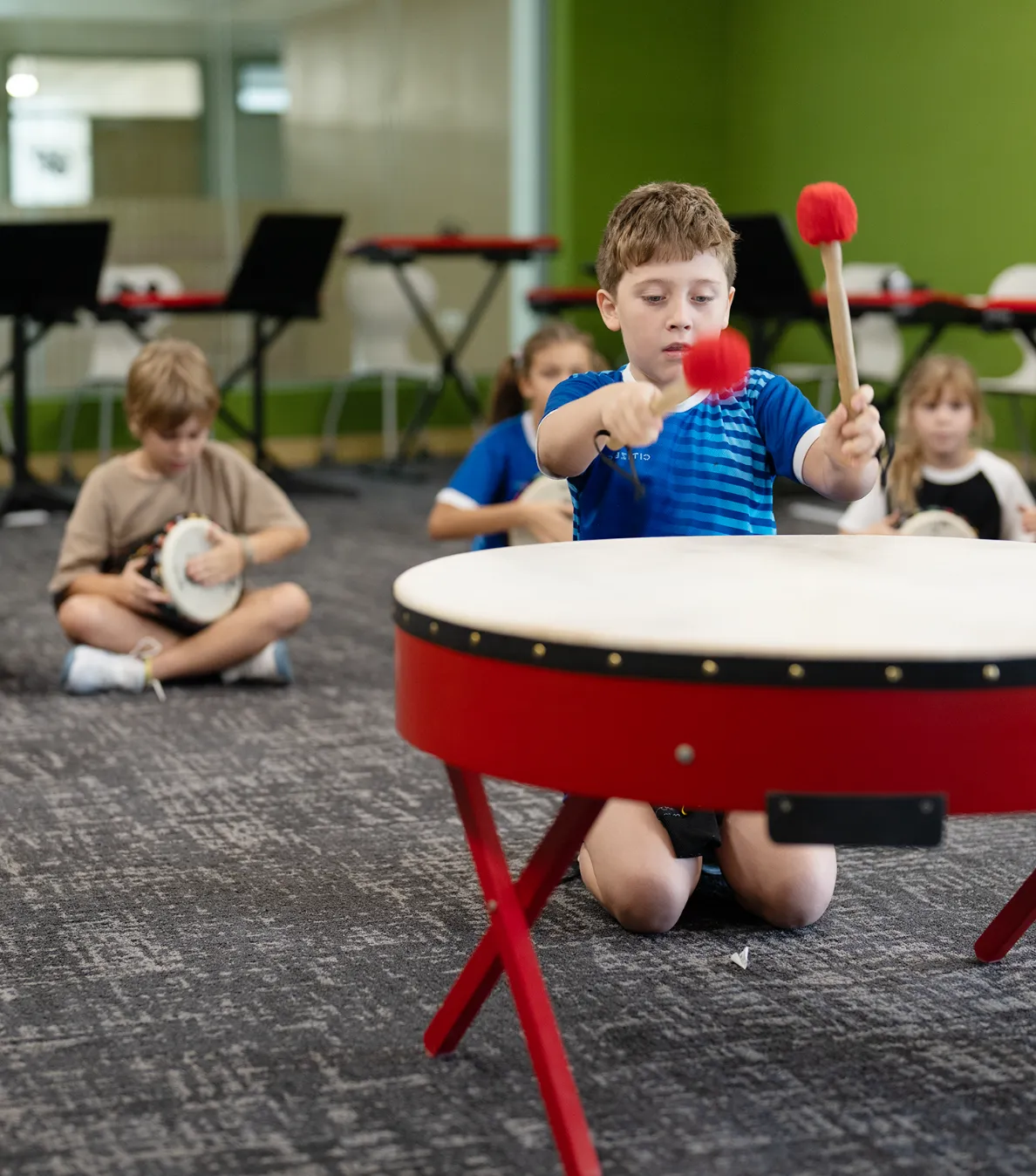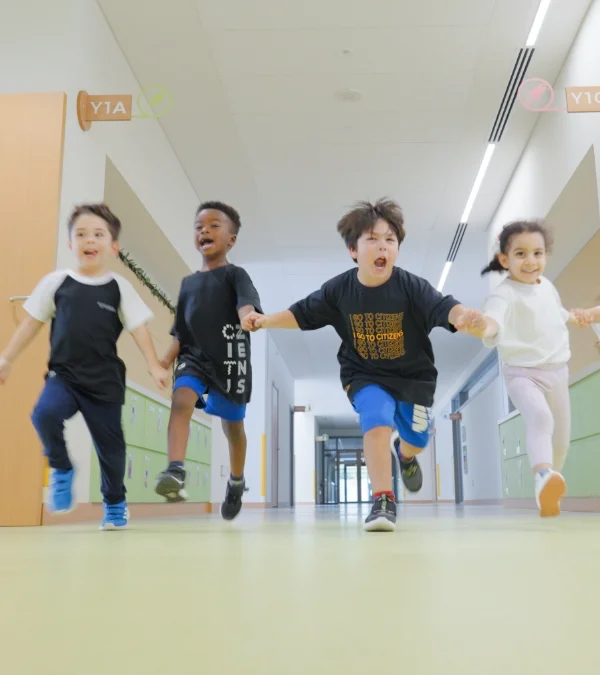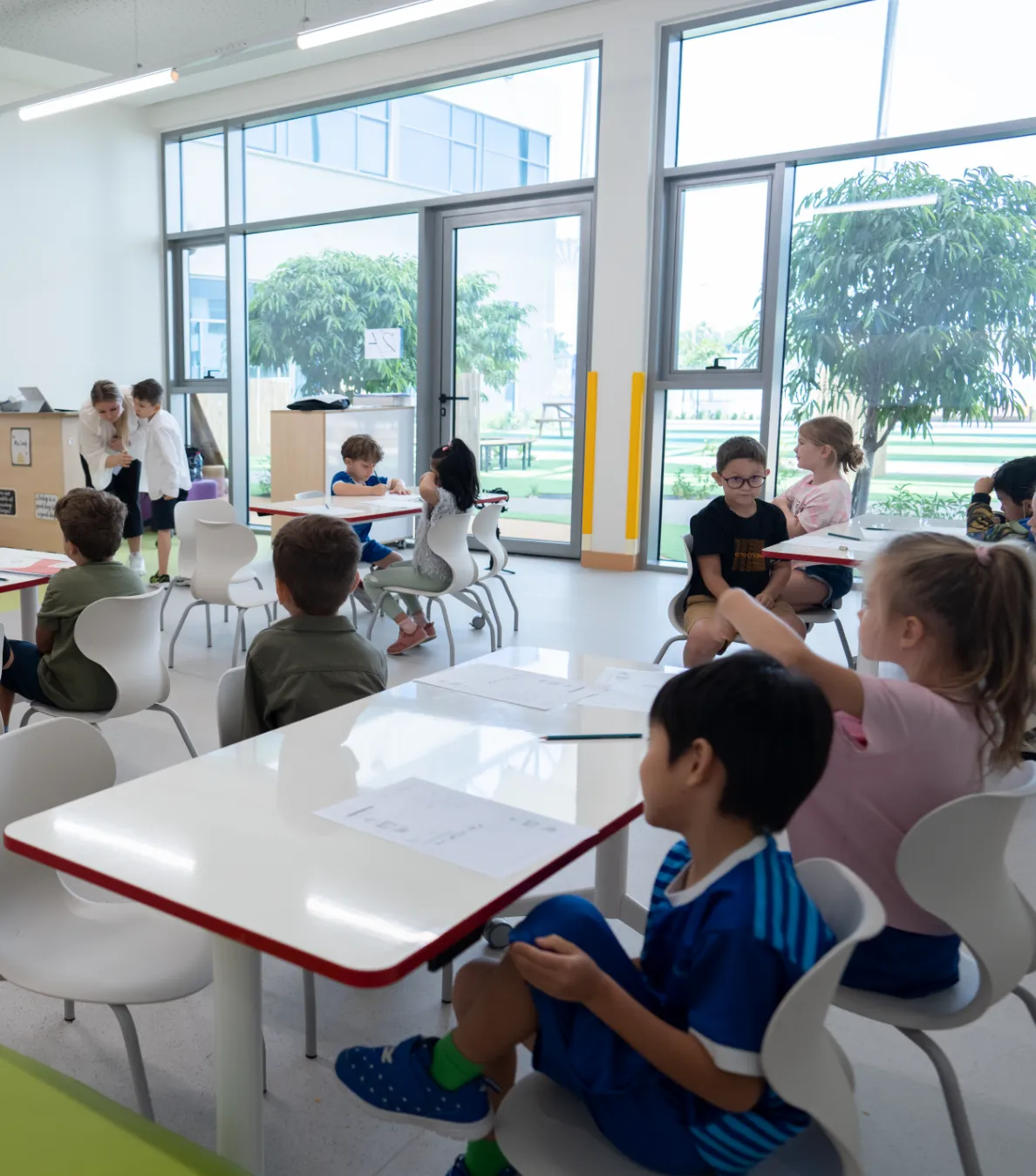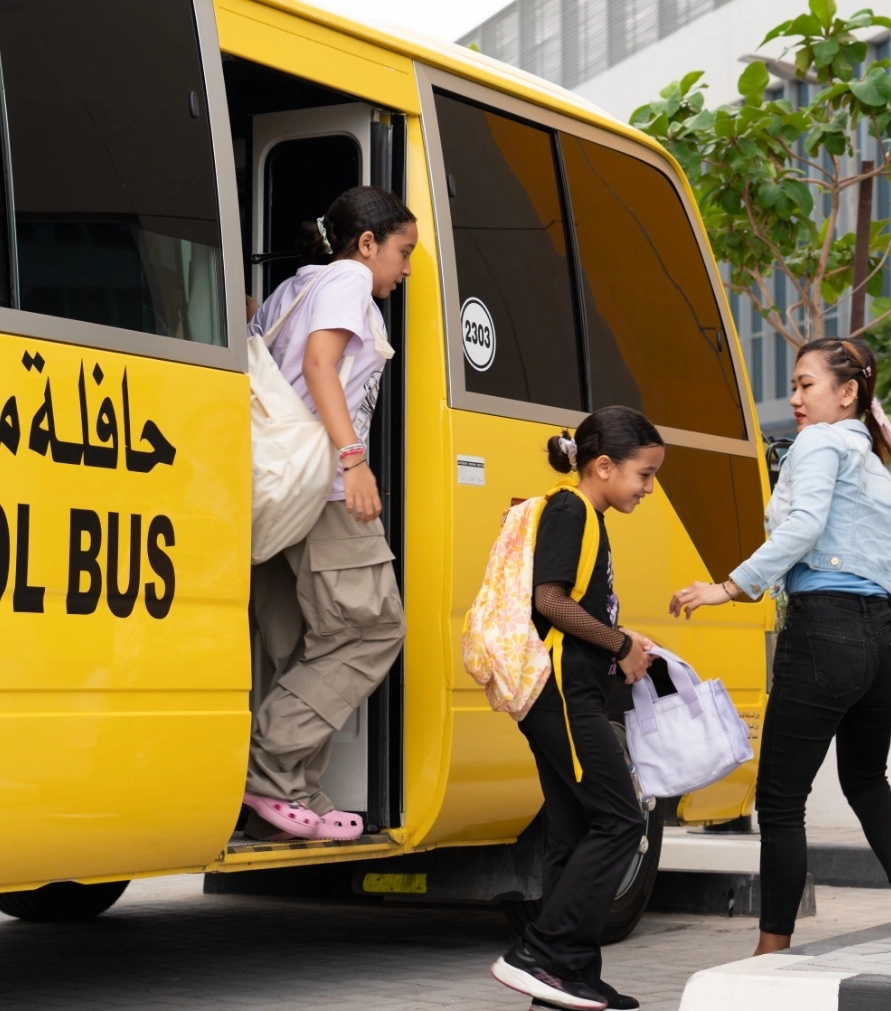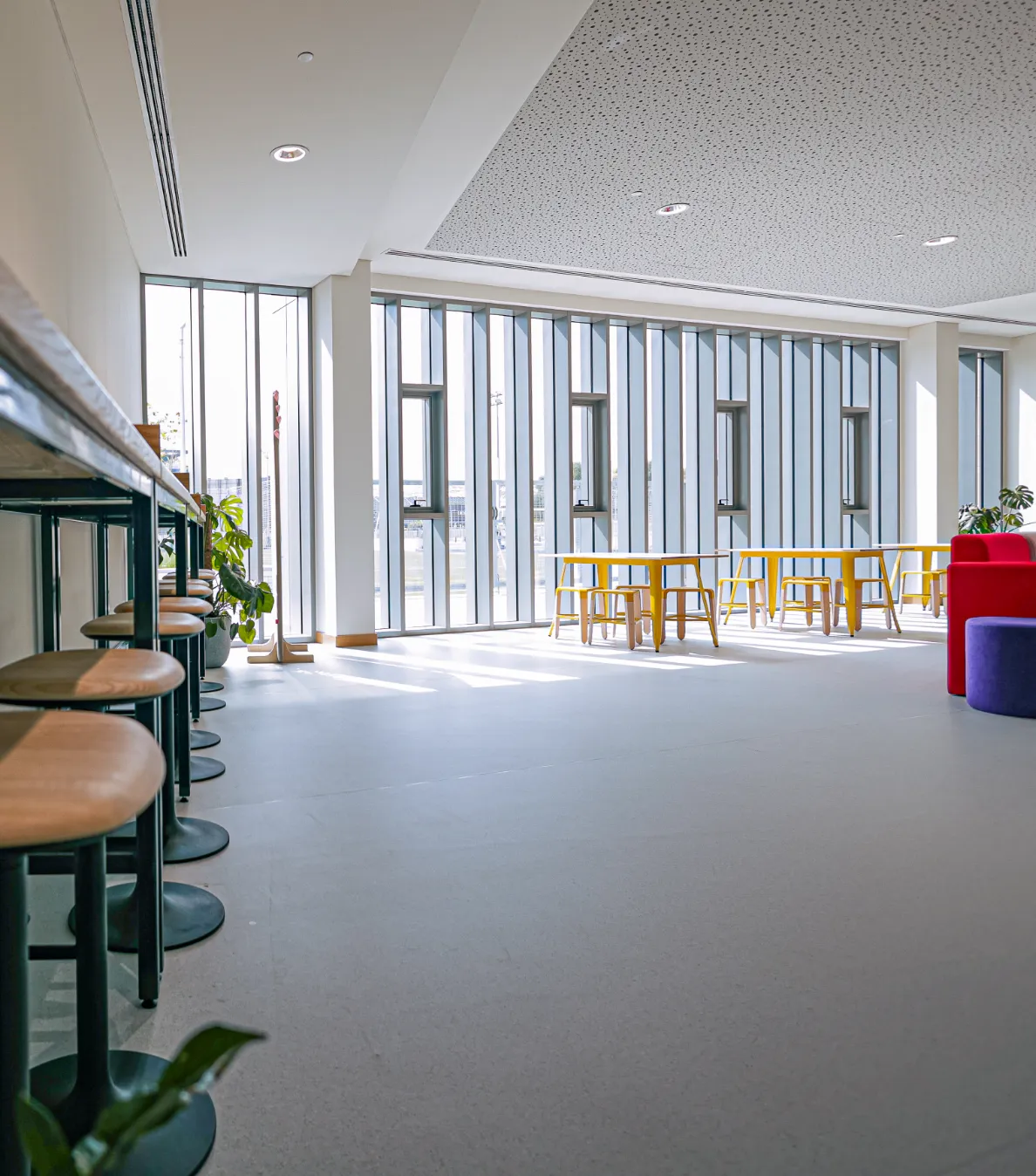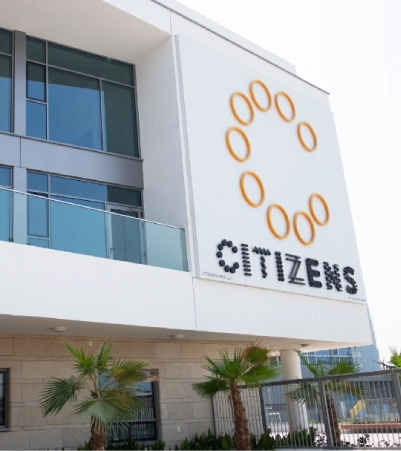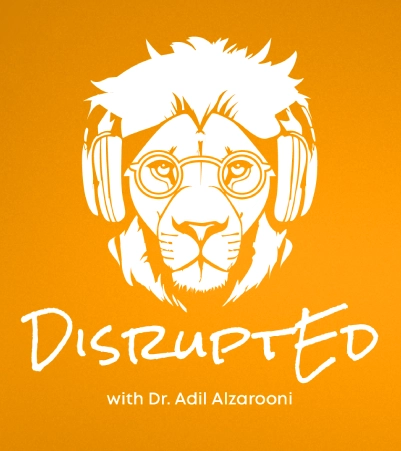Accessibility Policy
Policy Statement : Inclusion Policy
At Citizens we are committed to meeting the needs of all our learners, including those who show signs of having special educational needs or learning difficulties. We believe high quality teaching, differentiated for individual students, is the first step to responding to students who have or may have a Special Educational Need or Disability (SEND).
All mentors at Citizens School are mentors of inclusion.
-
Policy
This policy describes the way Citizens School meets the needs of children who experience barriers to their learning, which may relate to sensory or physical impairment, learning difficulties or emotional and social development. It also explains the roles and responsibilities of staff in this process.
-
Inclusion at Citizens School
At Citizens School we are fully committed to promoting inclusion of our children, whatever their age, ability, gender, race or background. We believe that the teaching and learning, achievements, attitudes and well-being of every child in the school is important. In accordance with the Dubai Inclusive Education Policy Framework (2017), we ensure “all students have access to quality instruction, intervention and support, so that they experience success in learning.”
We aim to provide equal opportunities for all groups of children, including those with diverse needs. Our main objective is to safeguard the interests of our children and to ensure they achieve their full potential. Our children should have the opportunity to join with their peers in the curriculum and life of the school. We endeavour to provide the best possible provision to ensure equality of education across the key stages.
At our school, we are fully committed to inclusion; however, we are aware that in exceptional circumstances, the needs of the individual child might not be met or that the inclusion of the child in mainstream education “is incompatible with the efficient education of other children.” (SEN Code of Practice. DFES 2015)
-
Laws and Regulations
Citizens School’s provision for students of determination is in line with the following laws and regulations:
- Dubai Inclusive Education Policy Framework (2017)
- Federal Law No. (29) of 2006 Concerning the Rights of People of Determination
- Federal Law No. (2) of 2014 Concerning Protection of the Rights of Persons with Disabilities in the Emirate of Dubai
- Executive Council Resolution No. (2) of 2017 Regulating Private Schools in the Emirate of Dubai
- U.A.E. Inspection Framework 2017
- 2020 SEND Code of Practice: 0-25 years (UK)
- Equality Act 2010 (UK)
- Keeping children safe in education (KCSIE 2021)
-
The role of the Inclusion Department
The Inclusion department identifies and supports students with learning differences. All members of the Inclusion department work alongside class mentors and subject specialists to ensure all students have access to first quality teaching. Where students continue to make inadequate progress, despite high quality teaching, the Inclusion department will implement appropriate support, which may include extension/enrichment activities, assessment and individual education plans. The Inclusion team will also ensure the most able learners are challenged appropriately to achieve their potential.
-
Roles and Responsibilities
At Citizens School all staff have a responsibility to promote inclusion. This will be achieved by:
- Delivering a curriculum to promote a full range of learning, thinking and life skills.
- Providing a broad, balanced and relevant curriculum.
- Using flexible and responsive teaching and learning styles.
- Equipping learners with the skills, knowledge and attitudes necessary to succeed as responsible and valued members of society.
- Developing a close partnership within and with the whole community, particularly, parents, governors and outside specialists.
- Partaking in termly Pupil Progress Meetings to ensure every child reaches their potential.
- All children having a right to individual help and respect from their mentors and other staff.
- All children having access to all aspects of the Curriculum appropriate to their level of understanding and stage of development.
- The well-being of all children being fostered, and children being provided with extra support when experiencing difficulties.
The Principal has overall responsibility for the Special Educational Needs provision at Citizens School and this is delegated to the Head of Inclusion.
The Head of Inclusion is the schools “responsible person” and manages the work to support children with additional learning needs. The Head of Inclusion works meets regularly with members of the SLT to discuss the provision for Inclusion at Citizens School, ensuring all children are appropriately challenged and/or supported. The Head of Inclusion will conduct termly Pupil Progress Meetings with all form mentors to discuss the progress of all children within the school.
-
Admissions
The Head of Inclusion may be involved in the admissions process when a potential pupil presents with additional learning needs (see admissions policy). The school will liaise with parents if a new pupil is in receipt of an external agency/school report which indicates the presence of a special educational need and or disability.
Criteria For Admission
- Meeting with each child and taking of observation notes;
- Complete a Wellcomm assessment and/or a CAT4 assessment
- Interviews with children and parents;
- Copy of current/previous school reports;
- Copy of any existing/previous IEPs;
- Reports from any specialists/copy of any medical reports;
- Parental Consent for SEN department/Internal agreement if the child needs a Individual Learning Support Assistant (ILSA).
Registration
Schools must give priority access to the admission of Students of Determination who are siblings of students already on roll. (Advocating for Inclusive Education KHDA, p.11).
The admission into all educational settings, including early years will not be conditional upon the submission of a medical diagnosis.
Once the school accepts the student, in all cases, if a school makes the decision not to enroll or re-register a Student of Determination, the school must complete a Non-Admission Notification Form to be submitted to KHDA for monitoring and regulation purposes.
Students Needs Identification/Categories
Students can be identified during the admission process or the academic school year. The Head of Inclusion will review accordingly in line with the Graduated Approach then follow up with required next steps with the family.
Individual Learning Support Assistant
If a student requires individual learning support, the process below will be followed. This will be outlined in an Inclusion Parent Contract identifying the level of support in place to meet the needs of the learner.
- Admission stage during which parents submit relevant documents (Educational psychology reports/ medical reports).
- Head of Inclusion meets with the family to discuss the level of support we will put in place to meet the needs of the child.
- If an ILSA is required, parents sign the Parent Inclusion Contract.
- The Head of Inclusion will liaise with HR to recruit appropriately.
- Head of Inclusion recruits Individual Learning Support Assistant (ILSA)
- Management approve the appointment and HR share offer letter with successful ILSA candidate.
- Head of Inclusion liaises with finance to share the invoice for ILSA with parents
- Parents complete the payment for additional support.
- Head of Inclusion and KHDA liaison officer upload the signed parent contract to KHDA Inclusion portal.
- If support is reduced/removed, the Head of Inclusion will review and adapt the contract then re-share it with all relevant parties.
- Student will start at school with appropriate LSA support in place.
-
Identification, Assessment, Monitoring and Review
Admissions Assessment
Children will be assessed by a member of the Admission Team or Inclusion Team at Citizens School. During this time children will be assessed to ascertain whether they are achieving at least the standard expected of a child of their age. At this stage, initial concerns are noted and discussed with SLT before a meeting with parents to discuss initial concerns and provision required.
Referral Process
Mentors take responsibility for providing quality inclusive teaching and differentiation in class. If a mentor has a concern about a child, they should follow the Graduated Approach and ensure quality first teaching is documented through the use of an Assess, Plan, Do, Review document. Once this cycle has completed and the mentor still has concerns regarding a student’s progress, then they will follow the Referral Process and schedule an observation with the Head of Inclusion or Inclusion Mentor. This procedure involves the Inclusion Team observing and identifying where potential barriers to learning may require further assessment.
Assessment Tools
The school’s systems for regularly observing, assessing and recording the progress of all children are used to identify children who are not progressing satisfactorily and who may have additional needs. Staff use a range of information and assessment tools to help them monitor and assess which may include:
- GL Progress Tests
- CAT4 Tests
- Early Years Goals
- Formative assessments (Evidence from class mentor observation and assessment)
- Summative assessments (Student performance as measured against the outcomes within the school curriculum)
- GL Rapid
- Lucid LASS
- Lucid COPS
- Dyslexia Portfolio
- Dyscalculia Screener
- British Picture Vocabulary Scale (BPVS)
- YORK
- CTOPP
- WIAT
- TOWRE
- TAPS
- WellComm
- Expressive and Receptive Language Assessment
- Fine and Gross Motor Assessments
All staff are expected to work closely with parents and encourage them to share relevant information that may affect their child’s ability to access the curriculum and progress with their learning.
n.b. The assessment tools that Citizens use are currently under review.
-
Categories of Intervention on the Inclusion Register
Citizens School uses the following categories to identify learners with additional needs.
Level 1 (Inclusive, Quality First Teaching)
All learners benefit from quality first teaching. However, there are some learners who may require further differentiation within the classroom. These learners will be monitored within Level 1 to assess if the differentiation in place is enabling the child to make progress within the mainstream classroom. The Assess, Plan, Do, Review procedure would be implemented to track this level of differentiation. These learners are added to the Monitoring Register.
Level 2 (Targeted Support)
Learners are considered to be within Level 2 if they meet any of the following criteria:
- Learners that are presenting with a learning need that cannot be met in class by differentiation alone (e.g. children receiving group targeted support);
- Learners with persistent behavioural difficulties that are impacting on their learning or the learning of others;
- Learners who have a sensory or physical impairment that impacts or could potentially impact on their future learning.
Dependent on the level of need, some learners may require a Learner Profile outlining key areas for support and development. The class mentor will be responsible for writing and reviewing the Learner Profile in consultation with the HoI where necessary. All children within Level 2 are placed on the Learning Support Monitoring register
For children receiving group support (booster sessions, small group intervention), progress will be tracked and recorded by the person delivering the intervention.
Level 3 (Specific Support)
Learners are considered to be within Level 3 if they meet any of the following criteria:
- Learners who require some additional one to one support to meet their learning needs such as individual targeted support sessions;
- Learners who require a high level of individual support to enable them to access the curriculum and make appropriate progress (according to their individual needs);
- Learners who require a highly modified curriculum;
- Learners who require one to one support from specialists (i.e. Speech & Language Therapists, Occupational Therapists, Behaviour Therapists, Physiotherapists, Dyslexia support, etc.)
- Learners who required a one to one Learning Support Assistant for some or all of their time in school in order for them to fully access the curriculum.
All children within Level 3 are placed on the Inclusion register and have an Individual Education Plan (IEP) in place. The writing and review of the IEP for learners is the responsibility of the class mentor but will be coordinated by the HOI to ensure communication with any external professionals to determine effective targets for each IEP cycle.
N.B. Not all learners receiving support from Occupational Therapist and Speech and Language Therapist will be on the Level 3 register. This will be assessed on a case-by-case basis.
-
Inclusion Register and Record Keeping
The Inclusion register is maintained by the HoI and is continually updated throughout the academic year. The current register will be shared with staff on the school shared drive, Microsoft Teams. Learners may be added to the register when they are identified with needs and meet the level criteria listed above. Learners may be archived from the register if they leave the school, or following successful interventions if they no longer meet the level criteria listed above.
Each pupil who is identified as SEND within the school has a confidential file maintained by the Inclusion Department. This file includes the following:
- Referral form
- Assessment documentation
- Recent assessment report by an Educational Psychologist
- IEP
- Parent meeting minutes
- Progress reports and end of term reports
- Any other relevant data
-
Provision
The Inclusion Department works with the whole school to promote inclusion for all children. It provides a range of services including the following:
- Advice and support to all staff on identification of children’s additional needs and strategies for supporting these needs;
- Writing, and support in writing Individual Education Plans;
- Monitoring the effectiveness of IEPs in meeting pupil’s needs;
- Updating and dissemination of Learner Profiles to all staff;
- Co-ordination and monitoring of small group and individual targeted support by class mentors;
- Advice and support to parents;
- Support assessing for admissions where SEND (or possible SEND) are identified;
- Identifying and supporting G&T students;
- Recognising the needs of EAL students and targeting support;
- Provision of Social Communication Groups;
- Provision of specialist support services within school e.g. Speech and Language Therapy, Occupational Therapy and Educational Psychology (at an additional cost to parents);
- Liaison with outside agencies and other external specialists (at an additional cost to parents);
- CPD for staff to help them to identify and meet the needs of their learners;
- Developing and maintaining links with other schools to support inclusion.
-
Access Arrangements
Learners who have been identified as having an additional learning need may be eligible for examination access arrangements.
Ongoing assessment and review assessments conducted by mentors and the Inclusion team will determine if arrangements are necessary for all work in school, including assessments and general classwork so that a ‘normal way of working’ and a history of need is established prior to formal application to examination boards.
When students are of appropriate age, assessment of need specifically for access arrangements will take place, using appropriate assessment tools. The school has a bank of assessments that are approved for use by the JCQ.Following assessment, application will be made to examination boards for additional arrangements and adjustments to complete public examinations such as GL assessments, CAT4 assessments.
The Head of Inclusion will liaise with parents and mentors with regard to the access arrangements and the evidence required.
All access arrangements and reasonable adjustments will fall in line with the Equality Act 2010 to ensure learners are not disadvantaged by their differences.
All applications for access arrangements will follow recommendations and guidelines from the JCQ. For example, the gathering of evidence required from staff to submit any application to the appropriate awarding bodies in accordance with the regulations set out by the JCQ and the completion of Form 8, a document required by the JCQ.
-
English as an Additional Language provision (EAL)
The school conducts its learning in English and there is an expectation that all children will be able to communicate effectively in the English language.
Children are not regarded as having a learning difficulty solely because they are learning English as an additional language but they may require additional support in order to access the curriculum which is why this section is included in this policy. Please also see separate school EAL policy.
If additional support is required for students with EAL, they will be added to the EAL register and in some cases may be included in the learning support register.
If a student is identified as having SEND in their mother tongue then they will be added to the learning support register and the aim is that their individual needs will be met in line with any other student identified as requiring further support in lessons.
-
More Able, Gifted and Talented provision
The school recognises the diverse learning needs of its students and this includes those who are deemed as high achievers, gifted and talented. Reference should be made to the school’s More Able, Gifted and Talented policy for identification and provision.
-
Working with outside agencies
Where necessary and appropriate, the school will seek support from and work closely with outside agencies such as occupational therapists, educational psychologists, speech and language therapists, clinics and centres within the Dubai network, behavioural optometrists, sensory services, SENCO forums and other appropriate experts.
Where a student continues to make less than expected progress, despite evidence-based support and interventions that are matched to the student’s area of need, the school will consider involving specialists with the permission of parents. Should payment for these services be required, then this will be borne by the parents.
The school works closely with a range of respected centres. Occupational therapy, speech and language therapy and Applied Behaviour Analysis is available in school from external centres. These are not exclusive providers and the HoI also keeps contact details of other clinics and centres in Dubai should parents want to explore other options and other agencies.
